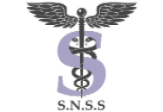Careers

Latest Job
Department: SURGERY
Position Overview: As defined by the American College of Surgeons (ACS), surgical assistants provide aid in exposure, hemostasis, closure, and other intraoperative technical functions that help the surgeon carry out a safe operation with optimal results for the patient. In addition to intraoperative duties, the surgical assistant also performs preoperative and postoperative duties to better facilitate proper patient care. The surgical assistant performs these functions under the direction and supervision of the surgeon and in accordance with hospital policy and appropriate laws and regulations. .
Detailed Description of Job Duties:
The surgical assistant is responsible for assisting the surgeon under direct and indirect supervision throughout preoperative, intraoperative, and post-operative duties and procedures at all times.
1. Preoperative
The surgical assistant facilitates the safe positioning of the patient according to the surgeon’s preference, patient’s anatomical and physiological limits, and surgical procedure to be performed. A preoperative introduction visit may be done to assess the surgical site to better aid in positioning. Assists circulator and anesthesia provider in preparation of the patient to include but not limited to: Foley catheter placement, tourniquet application, placement of intravenous catheters, cricoid pressure application, and other procedures as needed.
2. Intraoperative
The surgical assistant performs specific tasks according to individual surgeon preference utilizing appropriate techniques including, but not limited to: incision and layered closure of surgical sites, providing exposure, achieving hemostasis by means of injection, manual, and topical methods, and application of appropriate energy sources, manipulation and dissection/removal of tissues, aides in implanting, securing, and/or removal of devices and drains, and applying appropriate dressing material specific to procedure
3. Postoperative
The surgical assistant applies any other specific dressing material such as splints or casts, assesses skin integrity, assists in transfer of the patient, and follows the patient to recovery if needed or directed by surgeon.
4. Specialty Procedures
The surgical assistant who has appropriate training also performs under surgeon supervision other procedures including but not limited to: vein and graft harvesting, and graft and implant preparation.
5. Additional Duties
The surgical assistant performs additional duties as delegated by the surgeon in cooperation with state and local policy.
Requirements & Qualifications for the Position:
Certification is conferred by the National Board of Surgical Technology and Surgical Assisting (NBSTSA), National Surgical Assistant Association (NSAA), and American Board of Surgical Assistants (ABSA). Initial certification as a Certified Surgical First Assistant (CSFA), Certified Surgical Assistant (CSA), and Surgical Assistant-Certified (SA-C) is based upon satisfactory performance on the national certifying examination from each organization’s credentialing body, following completion of an accredited program in surgical assisting or another pathway acceptable to the NBSTSA, NSAA and ABSA. CSFAs maintain their certification by earning 75 hours of approved continuing education in a four-year period or by successfully retaking the certifying examination at the conclusion of the four-year period. CSAs maintain their certification by earning 50 continuing education units every two years or successfully retaking the certification examination at the conclusion of the two-year period. SA-Cs maintain their certification by earning 80 recertification points and 400 clinical surgical cases or 1500 clinical surgical hours every two years or by retaking the recertification examination at the conclusion of the two-year period.
The NBSTSA’s certification program is accredited by the National Commission for Certifying Agencies (NCCA), the accreditation division of the National Organization for Competency Assurance (NOCA) and is in compliance with NCCA’s Standards for the Accreditation of Certification Programs. The NSAA and the ABSA provide national certifying examinations and credentialing within the structure of each of the organizations.
